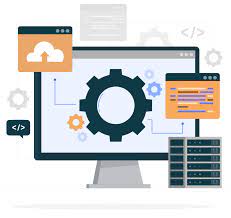
Applicant Tracking Systems (ATS) have become a vital component in modern recruitment and human resource management. With the advent of cloud computing, ATS platforms have evolved to offer more flexibility and efficiency in handling job applications. A self-hosted cloud-based Applicant Tracking System represents a unique blend of control and accessibility, allowing businesses to leverage the benefits of both worlds – the customizability and privacy of self-hosted software, alongside the scalability and convenience of cloud-based services.
Understanding Self-Hosted Cloud-based ATS
A self-hosted cloud-based ATS is an application that an organization installs on its own servers but can be accessed through the cloud. This means that while the software runs on the company’s hardware, it is accessible from anywhere via the internet, much like traditional cloud services. The key benefit here is that companies retain full control over their data and do not have to rely on third-party providers for data security and compliance.
Advantages of Self-Hosted Cloud-based ATS
1. Data Control and Security: By hosting an ATS on their servers, organizations ensure that they maintain ownership of their data and reduce the risk associated with third-party data handling.
2. Customization: Companies can tailor their ATS according to specific workflow requirements, integrating proprietary systems or developing unique features without being limited by vendor-specific restrictions.
3. Cost Management: Although there are initial infrastructure costs, over time self-hosting may be more cost-effective for large organizations due to reduced subscription fees associated with SaaS products.
4. Performance Tweaks: With direct access to the underlying infrastructure, IT teams can optimize performance and scale resources as needed without going through a service provider.
5. Availability and Reliability: A robust in-house IT team can ensure high levels of uptime, managing maintenance schedules around critical recruiting periods.
Considerations for Implementation
– Technology Infrastructure: To run a self-hosted cloud-based ATS effectively, robust IT infrastructure is crucial along with skilled personnel to manage it.
– Compliance: Organizations must ensure they comply with various data protection laws such as GDPR or CCPA when managing applicant data on their own servers.
– Disaster Recovery: An effective disaster recovery plan is essential as self-hosting means taking full responsibility for data backups and security against breaches or loss.
Future of Self-Hosted Cloud-based ATS
As businesses continue to seek greater control over their critical operations while enjoying the benefits of cloud computing, we can anticipate further growth in the adoption of self-hosted cloud-based ATS solutions. As technology advances, these systems will likely become more intuitive and offer even greater integration capabilities with other HR tools.
In conclusion, for organizations valuing customization, control, and ownership of their recruitment processes and data, turning towards a self-hosted cloud-based Applicant Tracking System offers a compelling case. While it may come with its set of challenges regarding setup and maintenance, the long-term benefits could significantly outweigh these initial hurdles for many enterprises.
